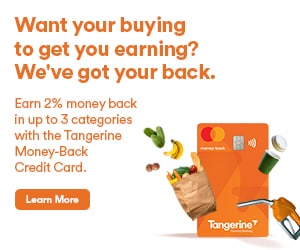“What is the best credit card for me?” This frequently pondered question echoes through our group and during Milesopedia events, underlining the increasing role credit cards play in both the realm of cash-back rewards and travel benefits.
However, there’s no universal answer due to the diverse array of offerings and individual requirements.
This article aims to serve as a comprehensive resource, gathering all pertinent inquiries related to this topic. Its purpose is to illuminate the path for individuals as they navigate the world of credit card choices.
Step 1: Defining Your Credit Card Goals
Before embarking on the journey to selecting the best credit card, it’s essential to outline your intentions and desires. Delving into card selection requires a clear vision of what you aim to achieve with these financial tools.
In the realm of rewards, two primary categories beckon:
- Cash-back Rewards
- Travel Rewards
It’s crucial to consider credit cards primarily as payment methods while pursuing rewards. Should budget management or credit card balance maintenance pose difficulties, revisiting your financial habits is advisable.
Exploring balance transfer or cash advance options can help recalibrate your financial course, but can also be used as leverage to earn rewards or a bit of passive income. It’s worth noting that interest charges from unpaid balances will definitely outweigh the value of earned rewards. Balance transfer and cash advance offers aren’t incentives for increased spending but serve as opportunities for debt repayment.
For those seeking advice on building credit, valuable resources are available in the articles provided by Milesopedia to understand how it works and the best ways to improve it:
Step 2: Crafting Rewards to Suit You
For those well-versed in financial management and budgeting, credit cards evolve into tools for optimizing rewards, enabling you to:
- Saving Everyday with Cash-back on All Expenses
- Elevating Travel Frequency and Style (such as flying in Emirates or Singapore Airlines First Class suites)
- Leveraging Reward Points for Maximum Tax Returns
- Strategic Investment using Credit Card Points
- Fulfilling Dreams and Achieving Early Retirement
If your primary aspiration revolves around accumulating substantial cash-back rewards, proceed directly to the 4th step.
Step 3: Refining Travel Goals and Requirements
Should your focus lie on accruing rewards for travel, it’s essential to define these objectives with precision. Unlike straightforward cash-back rewards, travel rewards encompass a multitude of options and avenues. Consequently, pinpointing the best credit card for travel necessitates meticulous consideration.
Selecting a credit card tailored for travel necessitates evaluating numerous factors. The following considerations guide your decision-making process:
- Type of Points and Travel Types: Rewards programs offer various types of points—airline miles, hotel points, etc. Each of these points is better suited for specific travel types. Accumulating different types of points for different trips, based on your destinations and preferences, can be advantageous. Do you often aim for budget destinations or luxury retreats in the Maldives or in French Polynesia?
- Destination and Travel Type: Before choosing a card, identify your planned destinations and preferred travel style. Business trips, family vacations, solo adventures—each travel type influences the ideal card choice.
- Date Flexibility and Seasonality: Are you flexible with travel dates? Do you travel during peak seasons or off-peak times? These factors play a critical role in card selection, as some offers are more advantageous during non-peak periods.
- Number of Travelers and Baggage: Are you travelling solo, as a couple, with a large family, or in a group? Do you need a card that offers benefits for multiple people? Additionally, consider whether you require perks like complimentary checked baggage.
- Insurance and Coverage: Travel insurance can vary significantly from one card to another. If you’re seeking specific insurance coverage, ensure that the card provides the necessary protections.
- Travel Class: Do you wish to travel in economy or business class? Some cards offer exclusive benefits for business-class flights, which might impact your decision.
- Airport Lounge Access: Frequent travellers often value access to airport lounges for relaxation before flights. If this is appealing to you, look for cards that offer this benefit.
- Frequency of Travel: Are you an occasional or frequent traveller? Some cards are tailored for frequent travellers, while others are better suited for those who travel sporadically. When you are a frequent traveller, you have more opportunities to get a higher target valuation (even possibly more than Milesopedia’s estimation).
Points and their best redemption for travel
The subsequent table encapsulates diverse travel goals and associated point types.
The possible redemption listed are only the most popular ones and usually the best way to optimize your points, there may be many other uses not mentioned. For more details, follow the links.
| Points program | Credit Card | Popular redemptions |
| Aeroplan |
|
|
| AIR MILES |
|
|
| American Express Membership Rewards |
|
|
| Asia Miles |
|
|
| Aventura |
|
|
| Avios |
|
|
| BNC Rewards |
|
|
| Flying Blue |
|
|
| Marriott Bonvoy |
|
|
| Scene+ |
|
|
| WestJet Dollars |
|
With travel objectives well defined, proceed to the next step.

Step 4: Maximizing Rewards Accrual
Regardless of whether you’re chasing cash-back or travel rewards, points accumulation follows two paths:
- Lucrative Sign-Up Bonuses
- Strategic Organic Earnings
A balance between these approaches optimizes rewards. While welcome bonuses offer substantial gains, long-term sustainability requires a blend of strategies. The impact of occasional new card applications on credit scores is less severe than commonly believed.
Our community often discusses the best credit card selection for upcoming “rounds,” as intermittent applications are common. For newcomers, gradual integration into this world is advised, considering this endeavour’s marathon-like nature.
Construct a comprehensive list of regular expenses by category. Each card boasts strong category accelerators, enabling precise earning maximization.
Simultaneously, budget establishment aids in curbing phantom expenses or refining savings goals.
A simple wallet for the best cash-back returns
The following example is a simple two-card cash-back wallet for someone who isn’t prepared to tackle credit card fees but still wants the maximum return.
| Credit Card | Category | Return |
| Tangerine World Mastercard |
|
|
| CIBC Dividend® Visa Infinite* Card (first-year-free) |
|
|
|
|
|
|
|
|
|
|
|
|
|
|
|
|
|
|
|
In this example, you could keep your base product for your organic spending, the Tangerine World Mastercard, and benefit from an elevated return for those infamous ‘’other’’ categories for a few months with the CIBC Dividend® Visa Infinite* Card.
Then, for the rest of the year, you can earn more cash-back without having to pay any fees. When your time with the CIBC Dividend® Visa Infinite* Card, you can close it and spend the next year with the TD Cash Back Visa Infinite* Card to keep getting high returns.
Visa compatibility with Costco presents a unique opportunity. A $2,000 Costco gift card purchase yields a 10% return, a substantial increase from 1%. That way, you will be set for a while, and you’ll be in no rush to spend it.
A simple wallet for the best travel rewards returns
Here is a simple base wallet example for general travel expenses (flights, accommodation, excursions, getting the best exchange rate, saving on foreign exchange fees, etc.); while it’s more difficult to avoid paying fees with these, they are considered the best credit cards for accumulating a lot of points on a regular basis. Furthermore, most of these cards come with annual travel credits or recurring promotional offers.
As this is a base wallet, you can add more products to cover all your specific needs and benefits you desire as getting points for ‘‘travel’’ can be very vague. For example, if you need a Nexus Membership for fast-tracking through the airport or if you need Marriott’s free night certificates because you often stay with the chain to enjoy your elevated status.
| Credit Card | Category | Return | Needs |
|
|
|
|
|
|
|
||
|
|
||
|
|
||
|
|
||
|
|
||
|
World Elite Mastercard from National Bank
|
|
|
|
|
|
||
|
|
||
|
|
||
|
|
||
|
|
||
| Scotiabank Passport Visa Infinite* Card |
|
|
|
|
|
The infamous other category never yields a generous return which is why I try to put those expenses exclusively towards unlocking a welcome bonus when possible.
Step 5: Optimal Reward Multiplier Selection
A comprehensive monthly expense list helps credit card selection for each category.
You can view our various guides here:
Bottom Line
Prior to selecting the best credit card for you, it’s crucial to establish your goals (cash-back vs. travel and which type of travel) and evaluate your specific needs. Detailed comparisons of benefits, annual fees, and points conversion rates should guide your decision-making process.
It’s essential to remember that credit cards should be treated like debit cards. While enjoying the rewards, ensure you don’t fall into debt. The key is to spend wisely and live within your means. After all, the best rewards are peace of mind and strong financial health.
Ultimately, there isn’t one best credit card; instead, there’s a card that aligns best with your preferences and habits. Making an informed choice requires time, research, and a deep understanding of what each card offers.
In summary, if the question “What is the best credit card?” persists, it’s important to remember that the answer lies in a thorough analysis of your personal needs.







